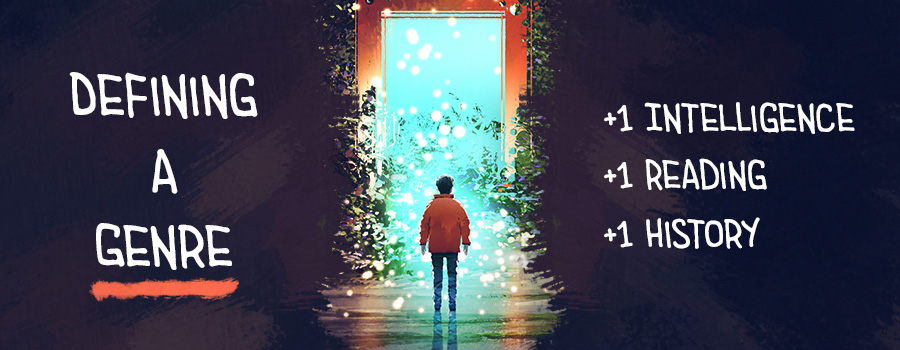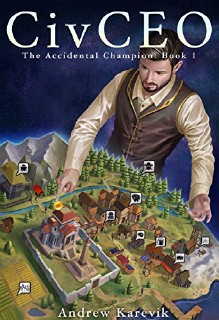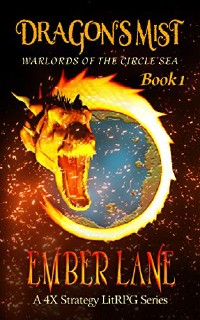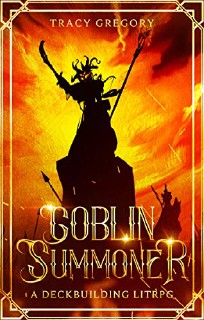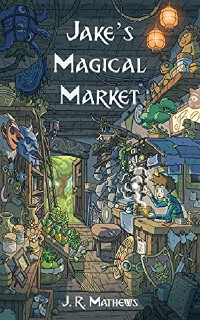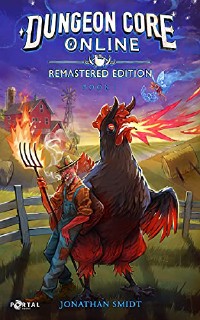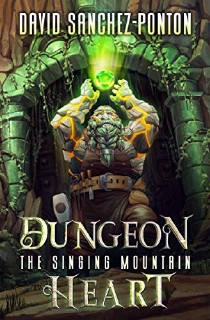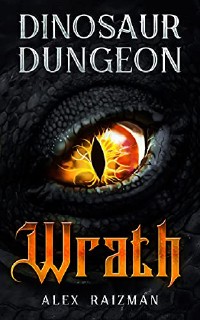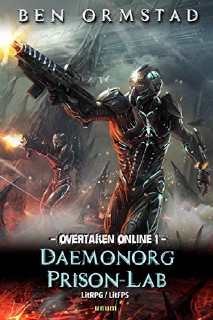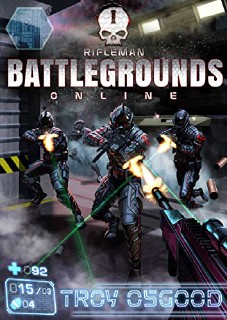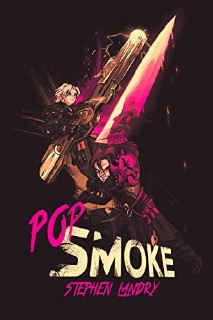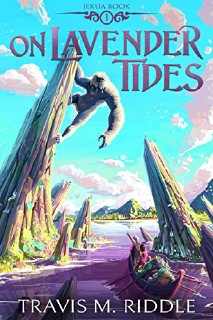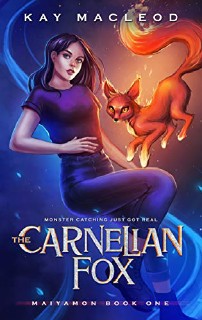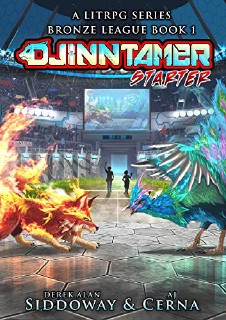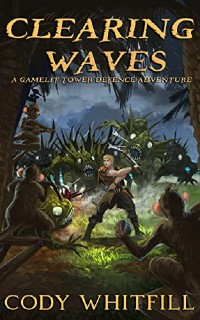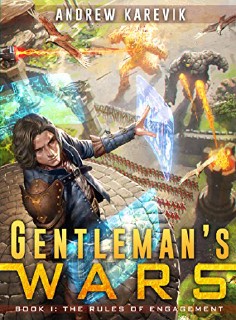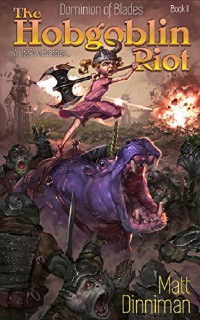What is GameLit?
The Book Genre for Gamers
The official website has the definition for GameLit, but it’s not entirely clear. That is why, after nearly five years since I coined the term, I’ve decided to end all the confusion. Better late than never, right?
Let’s start with the definition.
A story with gaming elements essential to the plot. Often includes features of Science Fiction, Fantasy, or Science Fantasy.
Clear as mud, right? It took a month of all-day-long debates with over two dozen authors to come to this definition back then, September 2017. And because of those debates I decided—all those years ago—not to force my opinion on the matter.
But I’ve seen too many wrong opinions about this genre—a genre I care very much about—to remain silent.
Let me make this simple for everyone.
LitRPG is a story with RPG (role-playing game) mechanics. GameLit is a story with game mechanics from any game genre.
Video and tabletop games that inspire this literary genre come in many flavors. RPG is but one flavor, one subgenre. Let’s take a look at some more.
There are RTS games like Dune, StarCraft, and Age of Empires; FPS games like Apex Legends, Valorant, Doom, and Halo; 4X games like Civilization, Endless Legends, and Humankind; MOBA games like DOTA and League of Legends; CCG games like Magic The Gathering and Hearthstone.
Every game genre can, with a bit of creativity, fit within a GameLit story.
And that’s exciting!
There are Farm games like Stardew Valley and Animal Crossing; Tower Defense games like Squadron TD and Plants vs Zombies; Factory games like Factorio, Mindustry, and Satisfactory; Dungeon Keeper . . . as genre and game. There are Rogue-likes, Platformers, Puzzlers, Simulators, Fighting, Racing, and more.
There’s a difference between saying it and showing it, which is why I’m listing out all of these games. I want to drive the point that GameLit provides a foundation for a lot of different game genres authors can pull inspiration from and use within their very creative and fun stories.
Writing a story using Pokémon (or monster taming) game mechanics—finding, capturing, training, and battling monsters against each other—will have a different feel than something influenced by D&D, The Witcher, and World of Warcraft.
That is why this genre exists! There’s a near-infinite treasure trove of exciting game mechanics to explore.
Maybe authors can inspire game designers by iterating on these ideas within literature, delving deep into the many “What If” scenarios.
What if your tower defense game used ammunition you had to grow? This would mix fantasy farming with the fun survival mechanics of a tower defense.
What if you built a dungeon (Dungeon Core) as if it were a theme park? Sell admittance tickets to adventurers so they can earn XP and loot. But, of course, you need food courts! And what theme park doesn’t have memorabilia? It’d be like combining Dungeon Keeper with Planet Coaster or Rollercoaster Tycoon.
The truth of the matter is, it’s far easier to write a game into existence than it is to develop one. This is part of what makes the genre so fun. We, as readers, get to experience these new game systems that either don’t exist or couldn’t exist.
What is Not GameLit?
Now that we have a decent idea of what GameLit is, it’s time to explore what it is not. The easiest way to do this is to answer one simple question:
Does the protagonist interact with game mechanics within a game or game-like world?
If the answer is no, there’s a good chance the book is not GameLit or any of its many subgenres. There are, of course, fringe cases. The below examples may work as GameLit but usually do not.
What Usually Doesn’t Fit
-
In the video game Halo, Master Chief fights to protect humanity from aliens. This is a popular FPS game that has many novels. But the story in those novels is not about a character playing a game. The story’s genre is military science fiction, not GameLit.
-
Tabletop rule books—including their campaign modules—for games like D&D and Pathfinder provide the rules and story to play a game. The participants are playing a game. But the characters of the story are not.
-
Text adventures like Zork or MUDs are Interactive Fiction. They are video games. And just like any other video game, your actions within it affect the story. The game mechanics, however, are likely not a part of the story itself but how you interact with it.
-
Choose Your Own Adventure stories are like text adventures in that they allow the reader to choose what the characters do, albeit in a limited capacity. As with text adventures, the story itself—not how it’s experienced—must contain the expected elements of game mechanics.
-
Nonfiction stories that focus on playing a game can work as GameLit, but this is a fringe case. Most readers expect the story to exist in a fantasy, science fiction, or science fantasy world.
-
Similar to nonfiction, eSport documentaries are “stories” that often follow a player or a team in a competition that revolves around a game. In a fictional world or game, this can work—The King’s Avatar comes to mind—but actual documentaries do not fit the genre.
Books are Messy
Books don’t always neatly fit within their assigned—or accidental—genres. Authors routinely push the envelope of what’s expected.
This is a good thing!
This is how genres mature and subgenres are born.
But there lies the problem. Genres are living things. The expectations readers have of a genre are constantly evolving. This happens as authors write new stories and readers evaluate them.
In the next five years, we’ll gain new insight of stories that should fit the genre but don’t; the above list of examples will grow. We’ll also uncover exciting new subgenres based on some unexplored game mechanic that spawns the next thousand GameLit books!
GameLit Book Examples
What better way to get a taste of the variations of GameLit than to list out a few books? This, by no means, is an exhaustive list.
RTS / 4x Lit Books
Looking to Explore, Expand, Exploit, and Exterminate? This subgenre dives into town-building, diplomacy, army management, war, and more.
CardLit / Deckbuilding Books
Magic in the form of cards. Collect them, trade them, level them, and design your deck to be the most effective in a battle of strategy.
Dungeon Core Books
If you build it (a dungeon), they will come. This subgenre is all about creating monsters and traps within a dungeon to defend against adventurers.
LitFPS Books
Guns, guns, and more guns! Or projectile weapons, in general. This subgenre leans toward science fiction, based on games like Call of Duty and Halo.
Monster Taming Books
Gotta catch em all! Monsters—cute or ugly, fantastical or technological—are caught, trained, and used to duel other trainers and compete in tournaments.
Tower Defense Books
The swarm is coming. Defense is the name of the game. This strategy-focused subgenre is about building towers, researching technology, and surviving.
GameLit FAQs
Does GameLit Have Stats?
This is one of the biggest misconceptions concerning GameLit. People, ad nauseam, say, “GameLit is just LitRPG without the stats.”
Wut?
Stats are the numbers that represent game mechanics. Just about every game and every game genre has some form of stats, be that in the form of health, resources, time, damage, effects, and so on. It doesn’t make sense to designate GameLit to the “no stats” genre when it’s a style choice.
The community has come up with terms to represent stats in stories. We have crunchy and creamy. Crunchy stats provides all the numbers for the reader to do the math and come to the same reported numbers the author did. Creamy stats play loose with the details. Both can be done very well.
Is Progression Fantasy GameLit’s Parent Genre?
Many in the community believe that Progression Fantasy is the parent genre to GameLit. I disagree. There is, however, a lot of overlap between these two genres.
As defined by Andrew Rowe, Progression Fantasy books are stories about characters who pursue their progression in power and skill over time.
The keyword here is pursue. There’s intent.
Just as GameLit requires a focus on game mechanics, Progression Fantasy requires a focus on progression. And yet, not all GameLit books have characters that focus on progression. Someone gaining a level willy-nilly isn’t pursuing progression; it happens by chance and doesn’t reinforce the progression theme.
I don’t entirely agree with the definition given to Progression Fantasy. I think the genre encompasses more than the official definition, which focuses on individual power. By this definition, Beware of Chicken and Legends & Lattes should not be considered Progression Fantasy. But even if the genre used a more inclusive definition, it still wouldn’t fit as GameLit’s parent genre.
Will You Trademark GameLit?
Given the trademark woes around LitRPG and System Apocalypse, the fear of GameLit being trademarked is understandable. The short answer is no.
The longer answer is that this genre was built from the very beginning to be fair and open for authors to use. To pursue legal ownership of the term would work against the vision we had for the genre when it was first being defined.
Our best defense against potential bad actors is to make heavy use of the GameLit term so that no one in their right mind would want to trademark it.
History & Contributors
It was within this thread that—after a long discussion—James G. Patton, author of Office Wars, said, “I honestly believe the issue people are having is that LitRPG defined itself as a subgenre to a genre that does not exist yet.”
Two months later, Zachariah Dracoulis started a thread in his Facebook group—LitRPG Rebels—about finding a better term for LitRPG. He believed RPG-Lit made more sense. It was within this thread that I suggested GameLit, which would be a more inclusive genre. Other suggestions included GamePunk, Game-Fi, and GameMech for game mechanics.
I liked the GameLit term so much that I grabbed the domain before we put it to a vote. Whether or not anyone else would use it, I would.
Shortly thereafter, a new private FB group called the GameLit Council was formed. This started a month-long debate—thousands of messages—to agree on the official definition and strategize the best way to launch the genre.
Unfortunately, it didn’t end well.
The only thing we agreed on was the definition. Launch strategies were foiled by authors prematurely using the term before an official announcement could be made.
This led to a lot of infighting. Eventually, the group was disbanded with the understanding that the genre would grow or fail with no official group to represent it. And that is largely why the genre is so ambiguous.
Aleron Kong trademarked LitRPG, reportedly, to protect it. Given how Kong had misused his moderator privileges on the r/LitRPG subreddit and how many authors he had banned from his LitRPG Facebook group, many authors did not believe his intent was altruistic.
Blaise Corvin, not wanting to deal with the trademark fallout, decided to rename his Facebook group from LitRPG Society to GameLit Society. It is this single move that likely saved the genre from obscurity. It is now, if not vaguely defined and understood, a genre used by hundreds of books.
No matter how discussions ended, if it weren’t for the work the following people invested in this new term, GameLit would simply not be a thing.
Thanks go out to . . .
Andrew Rowe, Blaise Corvin, Brian Anderson, Dawn Chapman, Drew Gerken, Dustin Tigner, Elliot Burns, Gabe Patton, Ian Woodhead, Jason Nugent, John Ward, Kip Terrington, Matthew Sylvester, Paul Campbell Jr, Richard M. Mulder, Stan Faryna, and Zachariah Dracoulis.
Some contributors asked me—five years ago—not to be named. If your name is missing from this list and you would like it added, please contact me.
A Living Genre
This article will be updated often to track GameLit’s growth and changes. If you feel anything in this article is incorrect or could use more information, please email me or reach out on any of the social media sites linked below.
Thanks for reading!
I hope you find many awesome GameLit stories to read. :)
